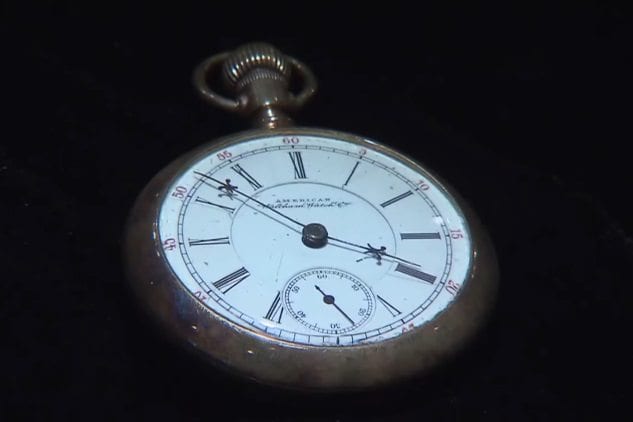
I am cleaning up my desk after a difficult week. Something about the re-organization always helps me after a bad patch. And, as I was doing so today I ran across this story.
I hope this one is pure fiction because the denouement of the narrator's conduct is, at best, troubling, but at worst a moral wrong. Maybe it's really somewhere in between as the world then, in World War II, and now, in the age of accusation devoid of empathy or a search for truth, has always been such a burden punctuated by too short moments of joy. It wears even the best among us.
THE WATCH
The letter came to me in Naples. It was written on the familiar chemically treated paper provided for use by enemy prisoners of war.
I had no immediate recollection of any prisoners with whom I had sufficient personal contact to warrant their writing to me. I looked at the return address.
The name was Junichiro Matsuo. There was immediate recognition. He was the Japanese envoy from Latvia, the one who had a Polish wife, she with a look of imperial arrogance.
I remembered the night of the emergency call.
"You will be receiving a cortege of middle level enemy prisoners. They are diplomatic enemy attaches, refugees from the advancing Soviet troops. Treat them with kid gloves." So said the voice.
I resented the call. I had no feelings of charity, of compassion, or forgiveness for the new arrivals. True, they were not the immediate executioners of innocent millions, not the ones who pulled the triggers and wielded the bayonets; but they were the channels through which death and desolation became the order of the day. The retribution was: "Treat the with kid gloves."
There was no contrition that I observed, no guilt. They demanded the treatment civilized nations allow the enemy, though thy came from a cause that destroyed any vestige of civilization. They knew the Geneva Convention.
Junichiro wanted a bath to remove the dust of his retreat from the vengeance of the Russian troops.
We provided a bathtub taken from a building that once was, and his Polish wife, now dutifully Japanese, scrubbed him clean.
He asked for more. He produced a watch and chain, a complex looking mechanism with several dials and minute hands that were stilled by a usually inexorable Time, something he called a Chronometer, a term I had not heard before.
"Honorable, sir," he said, "the watch does not function. Perhaps you will see to its repair?"
I took the watch without comment and placed it in my pocket.
The following day, the orders changed.
"Proceed as if they are ordinary prisoners."
Thus, they were processed, searched, divested of property of military meaning, and sent to appropriate compounds. Such are the winds of conflict. I saw no more of them, or heard, until this stained letter arrived, sent some months ago. It began:
"Honorable Sir, I lose much face before my father. I do not preserve the one thing he gave me that he had to give, the watch which I trust with you for repair."
I put the letter down and searched my various pockets. There it was, the little hands as still as they were when he gave it to me. My intention then was not to attempt a repair as he asked. I am sure I gave it little thought. Now, it occurred to me I would not give it back, even if I could.
I remembered another watch, not as elaborate as this one, suspended with an ordinary chain, that the Chaplain removed from the body of a boy on a lonely Italian hill. There were some cigarettes also, for which the departed had no further use. The Chaplain offered the crumpled package to some of us.
"Boys, there's nothing wrong with the cigarettes, take them."
We did not. There was the initial fear of ultimate contagion. It was our first encounter with death.
The letter spoke also of Death.
"My father was dying when he gave me the watch. He said, 'this is all I have to give, as I have failed in life. It is all I leave you to bestow, in turn, on your son.'"
There is no place, I thought, for sentiments of this kind. There are human impulses in a world only half human. I was not moved to pity. If I had any tears, they would go to the dead boy on the hill whose father and mother would receive, among other effects, the watch with the ordinary chain.
There was no more I wanted to read. I took the watch and held it by the ornate chain. The motionless hands were fixed on the Roman numeral twelve. It could not have been noon when they ceased their journey. It was the season of midnight and darkness in the world. I swung the watch in an arc and dashed it on the ground. I felt a tear descending on my cheek. I allowed it to make its way where such errant drops are wont to go.